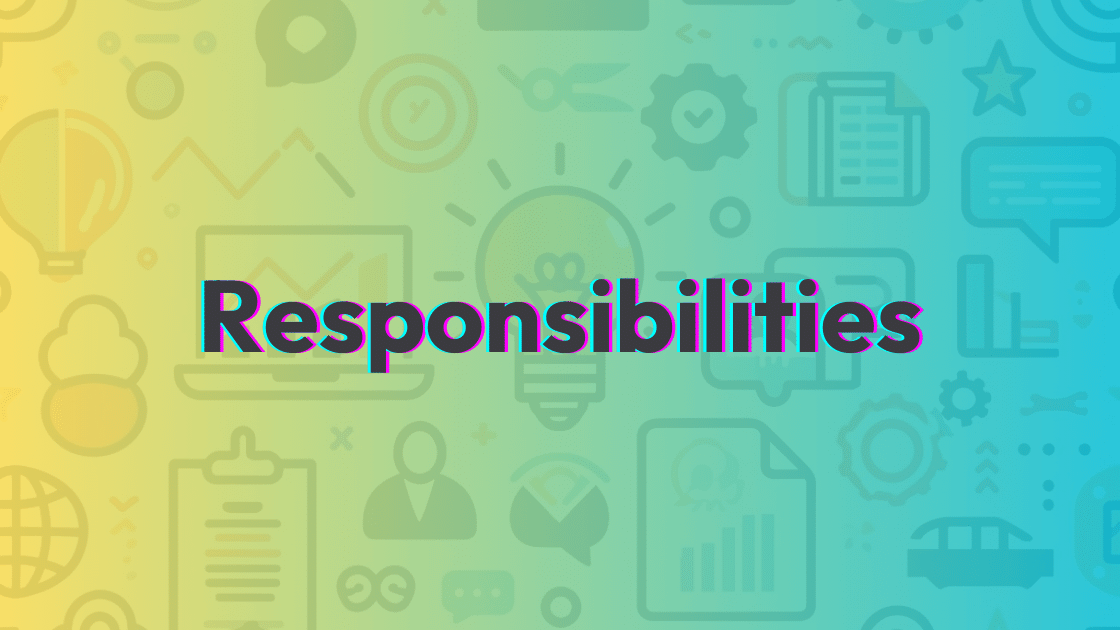IT Product Manager in Japan - Everything You Need to Know
Delano Stark asks the hard questions:
What is the opposite of an “Amateur-duct Woman-ager”
A Pro-duct Man-ager.
They can’t all be winners.
I spoke with Delano Stark, technical recruiter in Tokyo, for that joke and to learn what it takes to be a Product Manager in an IT Consultancy in Japan.
Del is working with one of the fastest-growing IT Consultancies in Japan to hire a Product Manager.
He gave me all the insights you need about the PdM role: what it is, what they do, the requirements, and tips on landing a job.
There’s a lot to cover, so let’s get started.
What It Is
A Product Manager in this role is key to driving the management agenda, focusing on new business developments, and maintaining business alliances.
This position is integral to the success of products, guiding them from inception through user feedback adaptation.
Responsibilities
In your role as a Product Manager, you'll be entrusted with a range of critical responsibilities that are vital to the success of the company's digital strategy. Here's what you can expect to handle:
Strategic Planning and Execution: You will be at the forefront of formulating strategies in the digital domain. This involves planning new businesses and leading digital transformation initiatives. Your strategic vision will be instrumental in shaping the future of the company's products and services.
Product Lifecycle Management: You are responsible for overseeing the entire lifecycle of the product, from ideation to launch and beyond. This includes roadmap formulation, user story design, and managing the product backlog. Your insights and decisions will directly impact the product's success in the market.
Leadership and Collaboration: As a Product Manager, you will work closely with various teams, including engineering and design, to ensure product development aligns with the company's vision. Your leadership will be crucial in driving product development initiatives and fostering a collaborative work environment.
Market and User Research: You'll conduct extensive market research and user interviews to inform business concepts and product features. Understanding market trends and user preferences will be key to developing products that meet the needs and exceed the expectations of your target audience.
Business Plan Development: Collaborating with management, you will build consensus on business plans. Your role involves presenting and advocating for your product vision, ensuring alignment with the company’s strategic objectives.
MVP Development and Test Marketing: Leading the development and testing of Minimum Viable Products (MVPs) is a core part of your responsibilities. You will use test marketing strategies to validate product concepts and gather valuable user feedback.
Growth Strategy for Existing Products: Apart from new products, you will also strategize for the growth of existing products. This includes conducting market research, formulating and executing growth roadmaps, and managing development priorities.
Now, let's take a look at what you will be doing every day of your life (except on weekends and holidays):
A Day in the Life of a Product Manager
8:00 AM: Morning Kick-off You start your day by reviewing your schedule and priorities. Over a cup of coffee, you catch up on the latest industry news and trends, ensuring you're well-informed about the ever-evolving tech landscape.
9:00 AM: Team Standup You lead a brief standup meeting with your team. Here, you discuss the day's objectives, track progress on ongoing projects, and address any immediate concerns. This is where you ensure everyone is aligned and motivated for the day ahead.
10:00 AM: Strategy Session You dive into a strategy session, focused on long-term planning for your product line. You analyze market data, review user feedback, and brainstorm with your team. This is where your vision for the product begins to take shape.
12:00 PM: Lunch
1:00 PM: Product Roadmap Review Post-lunch, you delve into the details of your product roadmap. You meticulously plan upcoming features, set timelines, and prioritize tasks. This roadmap is your blueprint for success, guiding your team’s efforts.
2:30 PM: Collaboration with Design and Engineering Teams You collaborate with the design and engineering teams to discuss implementation strategies for new features. Your role is to ensure that technical and design decisions align with the product vision and user needs.
4:00 PM: Meeting with Stakeholders In the afternoon, you have a meeting with key stakeholders. Here, you present updates, gather feedback, and align on the product's strategic direction. Your communication skills are key in these discussions, as you balance various interests and viewpoints.
5:00 PM: User Feedback Analysis Towards the end of your day, you spend time analyzing user feedback and metrics. Understanding user behavior and preferences is crucial for you to make informed decisions about future product enhancements.
6:00 PM: Wrap-Up and Planning for Tomorrow Before you call it a day, you review what’s been accomplished and plan for the next day. You leave the office knowing that your efforts are steering the product towards success, ready to tackle another day full of opportunities and challenges.
What are the requirements to make this your life?
Requirements
To excel as a Product Manager in this dynamic and challenging role, you must meet several key requirements:
Professional Experience: You need to bring a solid background in formulating digital strategies, planning new business ventures, and leading digital transformations. Your experience in product management, specifically for smartphone apps and web services, is essential. This includes expertise in roadmap formulation, user story design, and product backlog management.
Educational Background: While specific educational qualifications may vary, a degree in a related field such as business, marketing, or technology is typically expected. Additional certifications or courses in product management or digital strategy can be advantageous.
Strategic Vision and Execution Skills: You must demonstrate the ability to develop and implement effective digital strategies. This includes creating innovative solutions to drive business growth and adapt to market changes.
Collaboration and Leadership Abilities: Strong leadership skills are vital. You should be comfortable working collaboratively with different teams, including engineering, design, and marketing, and be capable of guiding these teams towards a unified product vision.
Market Research and Analytical Skills: You need a keen eye for market trends and user needs. Your role involves conducting thorough market research and user interviews, and you must be adept at translating these insights into actionable product strategies.
Language Proficiency: Given the location of the role, proficiency in Japanese is a must. While not mandatory, proficiency in English can be a significant asset in this role, broadening your ability to engage with diverse teams and global market trends.
Age and Experience Profile: Candidates typically in their 20s to 40s are sought, with a preference for individuals who have experience working in renowned companies known for their product development, such as tech giants or leading digital firms.
Workplace Flexibility: You should be willing and able to work at the company's main office in Tokyo, as the role requires in-person collaboration and strategy sessions.
Bonus Points
Background in business planning, market research at a consulting firm.
Experience in marketing research or application development at a tech company.
Here are the 5 skills that Delano said you should focus on to get a job.
5 Skills That Will Make You Stand Out
1. Product Management Experience with Web/Mobile Applications and Web Services
Why It Matters: Having experience in product management, especially with web and mobile applications, is crucial because these platforms are at the forefront of consumer and business technology. Understanding the nuances of these mediums ensures the products you manage are relevant, user-friendly, and competitive.
How to Build It: Gain hands-on experience through work or personal projects. Stay updated with the latest trends in web and mobile technology. Consider courses or certifications in web/mobile application development and product management.
2. Agile Methodology Experience
Why It Matters: Agile methodologies are widely adopted in tech for their flexibility and efficiency. Knowing Agile methods enables you to adapt quickly to changes, manage tasks effectively, and ensure continuous improvement in product development.
How to Build It: Work in an Agile environment, participate in Agile workshops or scrum meetings. Read books or take online courses on Agile methodologies. Certifications like Certified ScrumMaster can be very valuable.
3. Communication, Negotiation, and Persuasion
Why It Matters: These skills are essential for articulating product visions, aligning team goals, and influencing stakeholders. Effective communication, negotiation, and persuasion ensure smooth collaboration and can drive successful outcomes.
How to Build It: Practice active listening and clear communication in your daily interactions. Engage in courses or workshops focused on negotiation and persuasive communication. Seek opportunities to mediate discussions or lead meetings.
4. Roadmap and Backlog Management
Why It Matters: Effective management of the product roadmap and backlog is critical for setting realistic goals and priorities. It ensures strategic alignment of product development with business objectives and customer needs.
How to Build It: Learn to use roadmap and backlog management tools like JIRA or Trello. Study case studies of successful product roadmaps. Gain experience by managing smaller projects or components of larger projects.
5. Collaboration Abilities in English and Japanese
Why It Matters: Proficiency in English and Japanese is vital in today's global market, especially in diverse work environments. It enables effective collaboration with teams and stakeholders from various cultural and linguistic backgrounds.
How to Build It: If not already proficient, take language courses or engage in language exchange programs. Practice by working in multicultural environments. Utilize language learning apps or join language practice groups.
What is the career path?
Career Progression
The role offers varied career paths within the organization, including managerial positions, involvement in M&A, and group management roles, contributing significantly to the strategic direction of the company.
Path Leading to Product Manager:
Entry-Level Position (e.g., Junior Analyst, Assistant Product Manager, Technical Support)
Start with a role that gives you exposure to the tech industry.
Focus on developing a foundational understanding of product development and the market.
Mid-Level Position (e.g., Business Analyst, Associate Product Manager, Project Coordinator)
Move to a role with more responsibilities in managing projects or components of the product.
Gain experience in strategy formulation, market analysis, and cross-functional collaboration.
Senior Position (e.g., Senior Analyst, Senior Project Manager, Lead Developer)
Before becoming a Product Manager, you might work in a senior role where you lead larger projects or teams.
Hone your skills in leadership, strategic planning, and execution.
Product Manager
At this stage, you oversee the product lifecycle, from conception to launch, and post-launch analysis.
You're at the intersection of business, technology, and user experience, driving the product's strategic direction.
Career Progression After Product Manager:
Senior Product Manager
Manage multiple products or a larger aspect of the product line.
Influence broader business strategies and decisions.
Product Director / Head of Product
Oversee the entire product management function within the organization.
Responsible for long-term product vision and alignment with company goals.
VP of Product or Chief Product Officer
Lead the strategic direction of all products in the company.
Work closely with C-suite executives to align product strategies with business objectives.
General Management Roles (e.g., COO) or Entrepreneurial Ventures
Transition to broader business management roles or explore entrepreneurial opportunities.
Utilize your extensive experience in product management to guide business strategies or start new ventures.
Ready to apply? Use this link to reach out to us!
Before you do, here are some tips from Delano to help you land the job.
Tips for Landing the Job
Highlight your experience and skills in digital strategy and product management.
Align your capabilities with the company's vision and business goals.
Showcase your ambition and responsible work ethic.
Interview Tips
Prepare to discuss in detail your experience and approach in the digital domain.
Share insights on how you handle product development challenges.
Understand and align with the company's culture and values.
FAQ
1. What key skills are necessary for a Product Manager?
Strategic thinking, project management, analytical skills, technical understanding, and strong communication abilities are essential. You should also be adept at market research, user experience design, and have the ability to work collaboratively with cross-functional teams.
2. What educational background is best suited for a Product Manager?
While there's no strict educational path, degrees in business, marketing, computer science, or related fields are common. Additional certifications in product management, Agile methodologies, or digital marketing can be beneficial.
3. How important is industry experience for a Product Manager?
Industry experience is highly valuable. It provides you with a deeper understanding of market trends, customer needs, and the specific challenges and opportunities within the tech sector.
4. Can someone transition to a Product Manager role from a different field?
Yes, it’s possible to transition from fields like marketing, software development, or project management. Key is demonstrating transferable skills such as strategic planning, team leadership, and an understanding of the product development process.
5. What is the typical career progression after becoming a Product Manager?
After gaining experience, you can progress to roles like Senior Product Manager, Product Director, or Chief Product Officer. Some may also transition to general management roles or entrepreneurship.
6. How does a Product Manager collaborate with other departments?
A Product Manager works closely with teams like marketing, sales, design, and engineering to ensure the product aligns with business goals, customer needs, and technical feasibility.
7. What is the biggest challenge faced by Product Managers?
Balancing the diverse needs and inputs from various stakeholders (customers, company leadership, cross-functional teams) while ensuring the product's success in the market is often cited as a major challenge.
8. Is it necessary to have technical skills to be a Product Manager?
While not strictly necessary, having a foundational understanding of the technology relevant to your product greatly helps in making informed decisions and effectively communicating with technical teams.
9. How does a Product Manager stay informed about market trends?
Regular market research, attending industry conferences, networking, and staying updated with tech news and publications are common ways to stay informed.
10. What impact does a Product Manager have on the overall success of a company?
Product Managers play a crucial role in the success of a company by ensuring that products meet market needs, align with business strategies, and achieve financial goals.
11. How can I apply to be a product manager in japan?
Use this link to message us to learn what jobs are available right now in Tokyo!





























